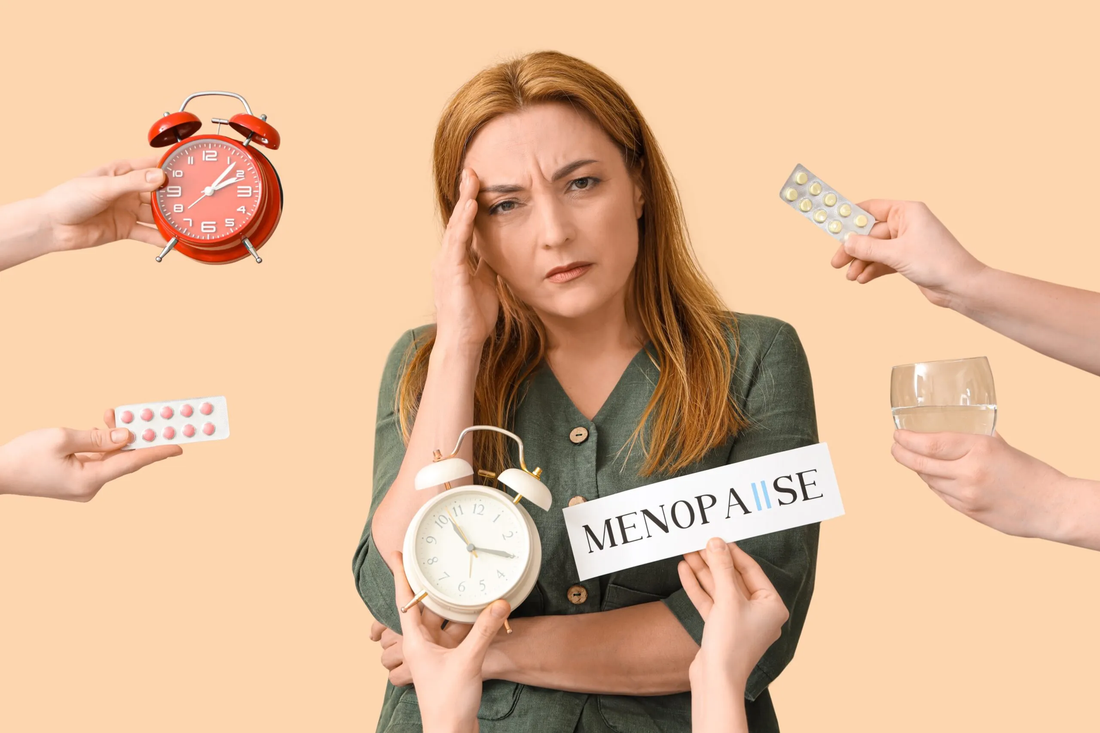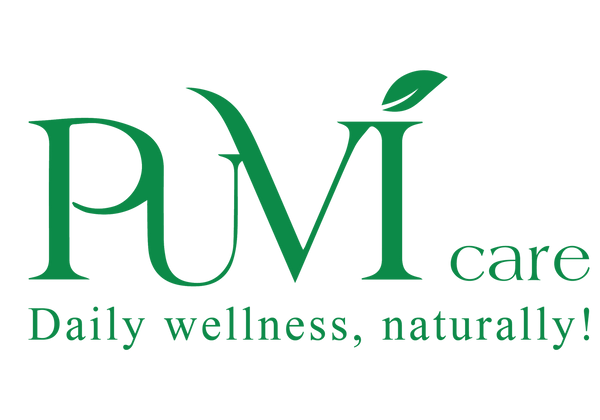
5 Ways to Balance Hormones, Reduce Stress, and Improve Circulation for Middle-Aged Women
Share
5 Ways to Balance Hormones, Reduce Stress, and Improve Circulation for Middle-Aged Women
Introduction
As women reach middle age, their bodies undergo significant hormonal changes, which can lead to various health challenges. Fluctuations in estrogen and progesterone levels may cause mood swings, fatigue, weight gain, and even issues with circulation. Additionally, chronic stress exacerbates these problems, making it essential to find ways to balance hormones, reduce stress, and promote better blood flow.
The good news? You can take charge of your health by making strategic lifestyle changes. In this article, we’ll explore five effective ways to naturally restore hormonal balance, combat stress, and enhance circulation—helping you feel revitalized and full of energy.
1. Adopt a Hormone-Balancing Diet
What you eat plays a crucial role in hormone regulation. A well-balanced diet filled with nutrient-dense foods can help stabilize blood sugar levels, reduce inflammation, and support overall well-being.
1.1. Prioritize Healthy Fats and Proteins
Healthy fats and proteins are the building blocks of hormones. Consuming high-quality fats helps the body produce essential hormones while keeping inflammation in check. Some of the best sources include:
- Avocados
- Fatty fish (salmon, mackerel, sardines)
- Nuts and seeds (walnuts, chia seeds, flaxseeds)
- Coconut oil and olive oil
Lean protein sources such as organic chicken, grass-fed beef, and legumes also provide amino acids necessary for hormone production and muscle maintenance.
1.2. Avoid Processed Foods and Sugar
Refined carbohydrates and processed sugars contribute to insulin resistance, a condition that disrupts hormone balance and can lead to weight gain. Instead of consuming white bread, pastries, and sugary snacks, opt for whole grains, fresh fruits, and natural sweeteners like honey or stevia.
Eliminating processed foods can also reduce exposure to harmful additives that negatively impact hormonal health. Try to eat whole, unprocessed meals as often as possible.
1.3. Consume Phytoestrogen-Rich Foods
Phytoestrogens are plant-based compounds that mimic estrogen in the body, helping to balance hormone levels. Foods rich in phytoestrogens include:
- Soy products (tofu, tempeh, edamame)
- Flaxseeds
- Lentils and chickpeas
- Sesame seeds
Incorporating these into your diet can help manage symptoms of hormonal imbalances such as hot flashes and mood swings.
2. Manage Stress Effectively
Chronic stress is one of the biggest disruptors of hormonal balance. When stress levels rise, the body produces excessive cortisol, which can interfere with estrogen, progesterone, and thyroid hormones. Learning to manage stress is key to restoring equilibrium.
2.1. Practice Mindfulness and Meditation
Mindfulness and meditation are powerful tools for reducing stress and regulating cortisol levels. Regular practice can help:
- Lower blood pressure
- Improve focus and mental clarity
- Reduce anxiety and promote relaxation
Start with just 5–10 minutes a day of deep breathing or guided meditation. Apps like Headspace or Calm can be helpful in establishing a routine.
2.2. Engage in Relaxing Activities
Engaging in enjoyable and relaxing activities can lower cortisol and boost mood. Consider:
- Practicing yoga or tai chi
- Listening to calming music
- Spending time in nature
- Writing in a journal
Finding moments of peace in your daily routine can make a significant difference in hormonal balance and stress reduction.
2.3. Improve Sleep Hygiene
Lack of quality sleep can wreak havoc on hormones. To promote restful sleep:
- Establish a consistent sleep schedule
- Avoid screens (phones, tablets, TV) an hour before bed
- Keep your bedroom dark and cool
- Reduce caffeine and alcohol intake in the evening
Sleep is when the body repairs itself, so prioritizing good sleep hygiene is essential for hormonal health and overall well-being.
3. Exercise Regularly for Circulation and Hormonal Health
Physical activity is one of the most effective ways to balance hormones, reduce stress, and improve circulation. The right combination of exercises can enhance metabolism, boost mood, and promote healthy blood flow.
3.1. Strength Training and Resistance Workouts
Strength training is beneficial for maintaining muscle mass, which naturally declines with age. Lifting weights or using resistance bands can help:
- Improve bone density (reducing the risk of osteoporosis)
- Boost metabolism and fat burning
- Enhance insulin sensitivity (reducing the risk of diabetes)
Aim for at least two to three strength-training sessions per week to support hormone regulation.
3.2. Cardiovascular Exercises
Cardio exercises such as walking, jogging, swimming, and cycling improve circulation and heart health. Benefits include:
- Increased oxygen supply to the brain and muscles
- Lower stress levels due to the release of endorphins
- Reduced risk of heart disease and high blood pressure
Even a 30-minute brisk walk daily can significantly improve circulation and overall health.
3.3. Incorporate Stretching and Yoga
Yoga and stretching exercises not only improve flexibility but also aid in relaxation and stress reduction. Yoga, in particular, can:
- Lower cortisol levels
- Improve blood flow to vital organs
- Promote better posture and mobility
Practicing yoga or stretching for at least 15 minutes a day can enhance circulation and overall well-being.
4. Use Natural Supplements and Herbs
Certain natural supplements and herbs can support hormone balance, reduce stress, and improve circulation.
4.1. Adaptogens for Stress Reduction
Adaptogenic herbs help the body adapt to stress and balance hormone levels. Some of the most effective adaptogens include:
- Ashwagandha – Helps reduce cortisol and improve mood
- Rhodiola Rosea – Enhances mental clarity and fights fatigue
- Maca Root – Supports estrogen balance and boosts energy
These herbs can be taken as supplements, teas, or added to smoothies for daily support.
4.2. Omega-3 and Magnesium Supplements
- Omega-3 fatty acids (found in fish oil and flaxseed oil) help reduce inflammation and support heart health.
- Magnesium helps relax the nervous system, improve sleep quality, and regulate blood sugar levels.
Both are essential for women’s health, especially during hormonal transitions.
4.3. Herbal Teas for Hormonal Support
Herbal teas can naturally support hormone health and relaxation:
- Chamomile tea – Reduces stress and promotes better sleep
- Red raspberry leaf tea – Supports reproductive health and hormone balance
- Green tea – Contains antioxidants that help reduce inflammation and improve circulation
Replacing coffee or sugary drinks with herbal teas can have a positive impact on hormonal health.
5. Improve Lifestyle and Self-Care Habits
Lifestyle choices significantly impact hormonal balance, stress levels, and circulation. By making mindful adjustments, middle-aged women can enhance their well-being and feel more energetic.
5.1. Reduce Toxin Exposure
Everyday products can contain chemicals that interfere with hormonal health, known as endocrine disruptors. These toxins can be found in:
- Plastic containers (BPA)
- Skincare and beauty products (parabens, phthalates)
- Household cleaning supplies (harsh chemicals)
To minimize exposure:
- Use glass or stainless steel containers instead of plastic
- Choose organic and natural skincare and beauty products
- Opt for eco-friendly, non-toxic cleaning supplies
By reducing contact with harmful chemicals, you support your endocrine system and promote hormonal harmony.
5.2. Stay Hydrated and Support Liver Health
Hydration plays a crucial role in hormone regulation and circulation. Drinking enough water helps flush out toxins and supports the liver in detoxification.
To enhance liver function and hormone balance:
- Drink at least 8 glasses of water per day
- Eat liver-supporting foods such as beets, leafy greens, and turmeric
- Avoid excessive alcohol and processed foods
A healthy liver ensures proper hormone metabolism and detoxification, leading to better overall health.
5.3. Maintain Social Connections and Emotional Well-being
Social interactions and emotional well-being are often overlooked when discussing hormonal health, but they play a vital role in overall wellness.
- Strong relationships help reduce stress and promote happiness
- Laughter and positive interactions lower cortisol levels
- Support groups or therapy provide emotional stability
Engaging in social activities, spending time with loved ones, and seeking emotional support when needed can contribute to better mental and hormonal health.

